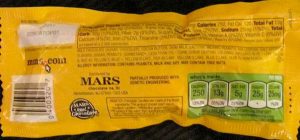Yesterday I explained why “butter is back” is not useful dietary advice, even when studies show that eating butter has little or no effect on disease risk (the total diet and calories are what matter). Now I can say the same thing about low-carbohydrate diets.
The debate about whether fat or carbohydrate is responsible for obesity has passionate advocates on both sides, although those for carbohydrates predominate in the press these days.
As explained by Julia Belluz of Vox,
The main scientific model behind the low-carb approach is the “carbohydrate-insulin hypothesis,” which journalist Gary Taubes, Harvard professor David Ludwig, and others have extensively promoted. It suggests that a diet heavy in carbohydrates (especially refined grains and sugars) leads to weight gain because of a specific mechanism: Carbs drive up insulin in the body, causing the body to hold on to fat and suppress calorie burn.
According to this hypothesis, to lose weight you reduce the amount of carb calories you eat and replace them with fat calories. This is supposed to drive down insulin levels, boost calorie burn, and help fat melt away…instead of just cutting calories, you’re supposed to change the kinds of calories in your diet to lose weight.
To his great credit, Gary Taubes was willing to put this hypothesis to the test. He organized the Nutrition Science Initiative (NuSI) to fund studies that he must have hoped would demonstrate the benefits of low-carb diets.
To its great credit, NuSI recruited highly experienced and respected obesity investigators to design and conduct the studies.
The first of these studies has just been published. It fully discloses the role of NuSI.
Supported by the Nutrition Sciences Initiative…Nutrition Sciences Initiative (NuSI) convened the research team, helped formulate the hypothesis, and provided partial funding. NuSI and its scientific advisors were given the opportunity to comment on the study design and the manuscript, but the investigators retained full editorial control.
In this case, because I am familiar with the work of some of the investigators, I’m inclined to take these statements at face value.
Here’s what they did. They put 17 overweight or obese men in a metabolic ward and fed them a very low carbohydrate diet, so low that it would induce fat breakdown and ketosis. The calories were supposed to be sufficient to maintain weight, but were not. The men lost weight from water excretion and breakdown of body protein as well as of fat, as is typical of what happens during partial starvation. Energy expenditure did not increase to the level anticipated from the carbohydrate-insulin model.
The Abstract concluded:
The isocaloric KD [ketogenic, very low carbohydrate diet] was not accompanied by increased body fat loss but was associated with relatively small increases in EE [energy expenditure] that were near the limits of detection [translation: barely detectable] with the use of state-of-the-art technology.
The Discussion concluded:
Therefore, our data do not support the carbohydrate–insulin model predictions of physiologically relevant increases in EE or greater body fat loss in response to an isocaloric KD. However, it is possible that dietary carbohydrate restriction might result in decreased ad libitum energy intake—a prediction of the carbohydrate-insulin model that was not tested in the current study but deserves further investigation.
In other words, restricting carbohydrate does not increase body fat loss or energy expenditure but might help you eat fewer calories.
This result confirms some of the results of a previous study from the first NuSI author. That one, funded by NIH, concluded:
Whereas carbohydrate restriction led to sustained increases in fat oxidation and loss of 53 ± 6 g/day of body fat, fat oxidation was unchanged by fat restriction, leading to 89 ± 6 g/day of fat loss, and was significantly greater than carbohydrate restriction (p = 0.002).
Taken together, these studies show that both low-carbohydrate and low-fat diets cause weight loss when calories are restricted, but low-fat diets cause greater losses in body fat content than do low-carbohydrate diets.
In my book with Malden Nesheim, Why Calories Count: From Science to Politics, we review a 1964 study that put obese patients in a metabolic ward and fed them low-calorie diets of widely varied composition. They lost weight at the same rate on diets ranging from 3% to 60% carbohydrate and from 13% to 83% fat. They titled the study “Calories Do Count.” The NuSI studies confirm the benefits of reducing calories from any source to lose weight.
Bottom line:
- With regard to weight loss, calories count and the relative proportions of fat, protein, and carbohydrate do not matter much (although low-carb diets may help with eating less).
- With regard to health, the food sources of calories matter very much indeed, and nearly everyone would be better off eating less sugar—at the very least because sugars provide calories, but no nutrients.
*Note: this version corrects an error in the version originally posted. Hall et al.’s 2015 study was funded by NIH, not NuSI. Apologies.



